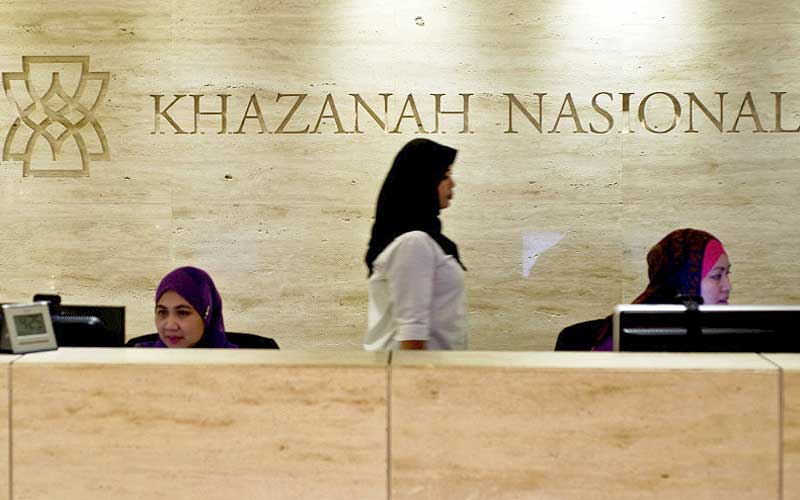
From Ibrahim M Ahmad
Prime Minister Anwar Ibrahim needs no reminding that the real test of the “Madani” aspirations of his government lies in how he manages the public purse.
For a country whose coffers have been repeatedly drained by endemic corruption and bad financial management, that is a mammoth task.
Rooting out corruption is one aspect of the job. Tightening procurement procedures is key. Bringing criminal charges against corrupt officials serves as a clear warning that graft will not be tolerated.
Yet, Anwar must do much more than that.
As finance minister, he must lead Malaysia’s public institutions into a new era of transparency and accountability. That would involve holding all government entities to the highest standards of fiscal accountability.
The prime minister would do well to start with the country’s sovereign wealth fund, Khazanah Nasional Berhad.
Set up to bring sustainable economic value and deliver societal benefits to all Malaysians, Khazanah’s 2021 financial statements appear to suggest that the fund has fallen somewhat short of its lofty goals.
Ignore the glossy annual reviews for 2022 and 2023 found on the fund’s website which set out cherry-picked information in fancy infographics. Such presentations only tend to obfuscate reality.
Khazanah’s 2021 financial statements tell its own story.
The first thing that jumps out at a discerning reader is Khazanah’s seemingly enormous debt. It records liabilities of RM47.2 billion, made up of almost entirely by RM45.1 billion in borrowings.
That figure appears rather alarming for a sovereign wealth fund with RM73.8 billion in assets.
Khazanah’s 2022 annual review says its net asset value (NAV) grew at an annual compounded growth rate of 5.3% from RM33 billion to RM86 billion between 2004 and 2021.
Those figures may impress the man in the street, but the finance minister, as custodian of the public purse, must ask several penetrating questions.
Do those numbers include borrowings? Has Khazanah used borrowed funds to finance its investments? Does that account for why it has registered low returns?
Indeed, Khazanah’s balance sheet suggests this may be so.
Its 2021 financial statements valued the total assets of the fund, including all special purpose vehicles (SPVs) established for its various ventures, at RM84.8 billion. Listed in the breakdown of that sum are borrowings to the tune of RM48.5 billion.
Khazanah should be called on to publicly explain why a sovereign wealth fund would need such significant borrowings.
When, why and how were they incurred? How much of these borrowings were made in foreign currency? At what rates did Khazanah secure them? Do these borrowings have the effect of turning Khazanah into a geared private equity fund?
Khazanah also appears to be paying off debts owed by other institutions.
In May 2018, news reports emerged claiming that Khazanah funds to the tune of RM1.2 billion were used by former prime minister Najib Razak in the preceding year to pay off debts owed by 1MDB to the Abu Dhabi-based International Petroleum Investment Company (IPIC).
To date, neither the finance ministry nor Khazanah has denied those reports.
Then, in March 2019, Khazanah announced a new investment strategy which would see it split its portfolio into a commercial fund and a strategic fund.
That came amid reports that the Pakatan Harapan government led by Dr Mahathir Mohamad was in urgent need of funds for its coffers in the wake of massive debt repayment commitments owed by 1MDB.
Most capital market analysts will tell you that any attempt to move a wealth fund’s goalposts in the name of strategy is simply an attempt to make something look better than it actually is.
So what was the rationale behind the portfolio split? What financial implications did it have for Khazanah itself?
The finance ministry must also come clean and disclose to the public the full extent of debts which Khazanah has serviced and is expected to service for and on behalf of the government and multiple failed or failing national institutions.
The 2021 financial statements also suggest a worryingly low annual return of just above 4% for investments placed both in public and private markets in Malaysia in the preceding three years.
In an apparent attempt to justify the figure as a success, Khazanah has resorted to comparing it against the consumer price index (CPI). It has also pegged inflation at 3%.
Neither appears to be realistic.
Most economists agree that the CPI, which is measured using a controlled basket of goods, is not a true reflection of price changes in the economy. Likewise, hardly anyone thinks that real inflation is as low as 3%.
Khazanah’s recent sale of its Iskander studios has also raised many unanswered questions.
Announced earlier this month, the fund’s media statement on the sale of the film and TV production complex was curiously silent on the transaction price.
Market talk, fuelled by regulatory filings made by a counterparty in Singapore, suggests that the asset into which upwards of RM500 million was ploughed in since its launch eight years ago, was dumped for a mere RM35 million.
If true, that would give rise to another mammoth loss to the national coffers without any sort of public accountability.
Did anyone on the fund’s board or the ministry or the minister himself even blink at the prospect? Or did they simply shrug their shoulders and put it down to another change in strategy?
Anwar must hold government-owned institutions like Khazanah publicly accountable for matters which have a direct impact on an already strained Treasury.
Doing so will bring a significant positive impact on the country’s financial health.
It will also raise the approval ratings of the prime minister and his unity government.
There can be no harm in that. - FMT
Ibrahim M Ahmad is an FMT reader.
The views expressed are those of the writer and do not necessarily reflect those of MMKtT.



No comments:
Post a Comment
Note: Only a member of this blog may post a comment.